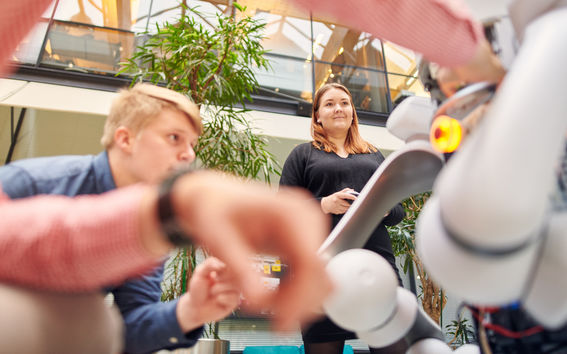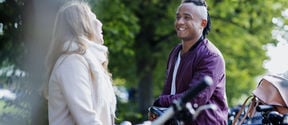Stian Kroken thinks there are a lot of benefits when it comes to studying in the international double-degree programme. He is a student of the Master’s Programme in Automation and Electric Engineering majoring in Electrical Power and Energy Engineering. The students of this major have a possibility to extend their studies to a double degree with the Reykjavik University in Iceland.
Why did you choose the major in Electrical Power and Energy Engineering and Aalto University?
I have always been interested in the field. I started out as a ship electrician before going into university. This sparked my interest in energy engineering. This led me to the Norwegian University of Science and Technology in Trondheim, Norway, where I took a bachelor's in renewable energy engineering.
During my studies, I was exposed to several courses in electrical power engineering which I really enjoyed. Therefore, I decided to take an MSc in electrical power engineering.
This is when I found the double degree programme at Reykjavik University and Aalto University. The benefit of getting two degrees as well as an Erasmus scholarship and even more international experience at a good university made the decision easy.
What benefits do you see in the internationality of the programme?
I see a lot of benefits of doing this programme. First, you get two master's degrees, one from each university.
Secondly the programme gives more options regarding course selection and you can specialise in more topics that are offered at the different universities.
Finally, you get international experience and an Erasmus grant in the second year when you change university. Overall, I think this gives more job opportunities.
What has been the best part of your studies at Aalto University?
The best parts have been to have more diversity and more courses to choose from, for example, Design for Reliability. I also like the strong connection between the school and the companies. We had several guest lecturers from ABB and Nokia.
What has been the best part of student life at Aalto?
One of the best parts has been experiencing the sauna culture and trying all the different saunas in Finland. I also got to travel to other cities in Finland which I really recommend doing, for example up north to visit Santa Claus.
It's also very easy and quick to go to visit Sweden and Estonia while you're a student at Aalto which is very fun.
What does the future of the field look like?
The future in the field looks bright. To reduce the emissions more electrical energy is needed, which means the power system will be essential. More electric power engineers are therefore needed.
Electric power transmission is in all corners of the world which means you could work anywhere. Already before delivering my master thesis, I got two job offers and several interviews.
I accepted one of them and I´m now working as a power line consultant one week after I delivered my thesis.
What would you say to international students who consider coming to Aalto and Finland?
Finland and Aalto have been great experiences. The Finnish people are very polite and welcoming and it's very simple to get settled as a foreigner. The public transport is very good which makes it easy to get around.
The climate and weather can be a bit different, from warm days in August to very cold days in November and December, but with access to outdoor swimming pools or saunas, it's easy to cool down or keep warm.
The student life at Aalto is also good and it's easy to join all kinds of activities for international students.





